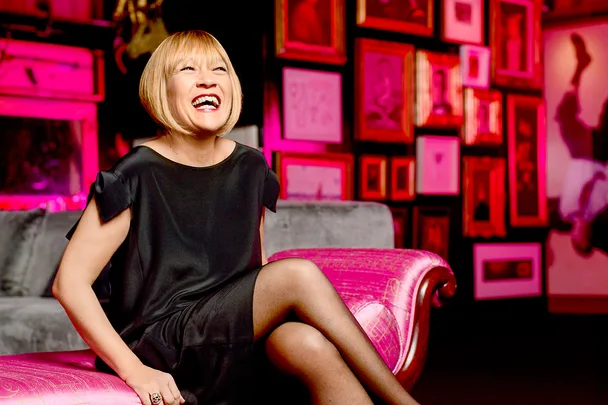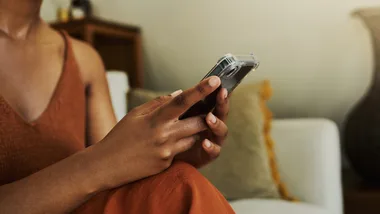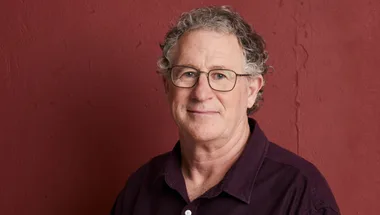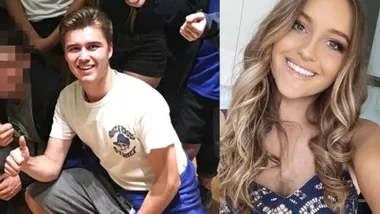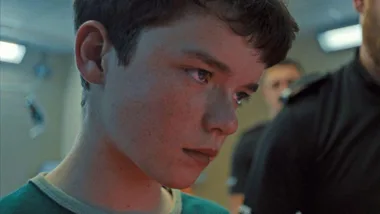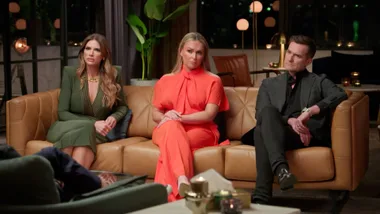JACKIE: To what extent did you experience sexism in your early career?
CINDY: I began working in advertising in 1985 in London, and I was a ferocious, ambitious young account person. But it’s a bit like that saying “a fish doesn’t know what water is.” When you are surrounded by sexism and bias you just think that’s the way the world is. Looking back, egregious things were happening around me, but you just kind of got on with it.
JF: You don’t hesitate to speak up against sexism in business today. What empowered you?
CG: When I left the corporate advertising world in 2005 to work for myself, I was able to see how very sexist and biased not only advertising is but every industry.
JF: So many advertisements talk down to women or trade in stereotypes. What can be done to change this?
CG: The Advertising Standards Authority in the UK recently announced that it’s going to actively examine and filter out ads that stereotype, objectify or feature negative depictions of women. But that is not where the problem lies. At the top of the advertising industry, like every industry, is a closed loop of white guys talking to white guys about other white guys. That is especially the case in the creative department. So, what we do not need is white male creatives being very careful about how they show women in advertising. We need women creating and approving advertising, and instantly the problem of stereotypes goes away.
JF: That makes sense.
CG: When we have more female creatives than male, we will see better depictions of women and men in advertising. I am seriously tired of watching young male morons in beer ads or seeing ads featuring hapless husbands, helpless fathers. All of those come from male-dominated creative departments who short-hand everything. Women bring a much more nuanced understanding of gender and relationships. Many young men talk about how they feel the men they see in ads do not reflect them at all; they don’t want to be associated with those dickheads.
JF: You have strong views on the topic of quotas to increase women’s participation in the workplace. But many people think quotas feel tokenistic.
CG: I’m a huge fan of quotas because I regularly hear from women who go, “Oh but Cindy, I don’t want to be hired just because I’m a woman.” And I go, “Get over it. Look around you at all the mediocre men who got hired just because they were men.”
If you are offered a position and you suspect it’s because they need a diverse person in that position, seize that opportunity and then do a bloody brilliant job in it to prove how much you deserved that opportunity all along. Sexual harassment ceases to exist in gender-equal environments because there is no longer the “bro” endorsement that tells men it’s OK to behave like that. And where men are engaging with women as professional equals all the time, they no longer see women in one of only two roles – girlfriend or secretary.
JF: Women approach you for help in navigating sexism in their own work- place. What do they tell you?
CG: The most depressing thing is that there’s one recurring motif: that women think they are the problem. I hear from women all the time who say, “I didn’t get the promotion; my work never got approved to run,” and “I thought it was me, I wasn’t good enough, I thought there was something I was doing wrong.” It makes me want to weep because it wasn’t them, it was never them. It is fundamental sexism and bias and I find that absolutely heartbreaking.
JF: How do men react when you explain the challenges faced by women trying to get ahead?
CG: Good men respond extremely well. One man said to me, “The women in our agency keep making us all sit down and they play us videos of your talks.” And he said, “I’m now actively focused on hiring as many female creatives as possible.”
JF: You champion the idea of using “micro- actions” to effect change in the world. When we have deep social and political division, how can small actions make a difference?
CG: Micro-actions are important because change happens from the bottom up, not the top down. Every single one of us every single day taking micro-actions to change the things that we want to see changed cumulatively adds up.
JF: In 2009, you launched Make Love Not Porn, a social sex video-sharing platform that depicts real people having real sex, not actors making staged porn. What are you hoping to achieve?
CG: The issue is that we don’t talk about sex in the real world. In the absence of open, healthy conversation around sex, porn becomes sex education by default and I felt a responsibility to change that. When Make Love Not Porn achieves its social mission of making it easier for everyone in the world to talk about sex, here’s what will happen: parents will bring their children up openly to have good sexual values and good sexual behaviour in the same way they bring them up now to have good values and good behaviour in every other area of life.
We will therefore cease to bring up rapists because we end rape culture when we inculcate a universal gold standard of good sexual values and good sexual behaviour. When we do that we end sexual harassment, sexual abuse, sexual violence and all areas where the perpetrators rely on the fact that we do not talk about sex to ensure their victims will never speak up, never go to the authorities, never tell anybody. When we end that we massively empower women and girls worldwide and we create a far better world for everybody, including men. That’s my end game.
